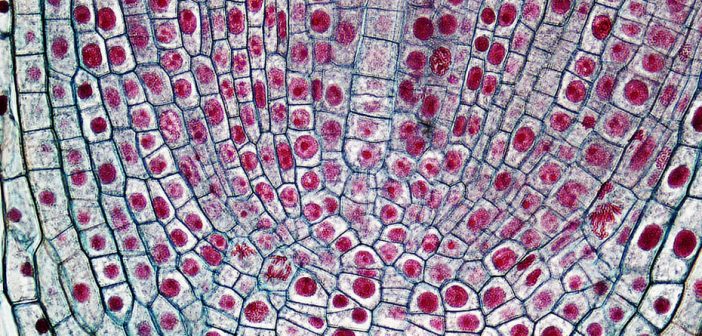The molecular mechanisms which enable plants to quickly adapt their rate of flower production in response to changing nutrient levels in soil have been revealed by researchers at the Sainsbury Laboratory.
A team of plant scientists has revealed that that increased soil nutrients in the form of nitrate lead to a response in stem cells in the shoots in less than 24 hours, both at the cellular and whole plant level.
First author of the paper, Dr Benoit Landrein said that it was already well established that the availability of nitrate can affect various aspects of plant development, and that while it was known that cytokinins were involved their exact role in mediating the response of the meristem to mineral nutrients had not been described before.
“Within one day of the root cells detecting additional nitrate, the cytokinin hormone precursors had travelled through the plant and converted to active hormones at the shoot meristem, which started influencing the shoot’s growth,” he explained. “The speed of this process was very surprising – the roots had not only responded to the change in environment themselves, they had rapidly communicated this information from the roots to the stem cells at the very top of the plant. We observed shoot meristem cells were starting to respond within 24 hours of the application of nitrate.
“This research provides us with improved insight into how mineral nutrients influence plant architecture and could be used to better understand plant response to environmental inputs and to develop cultivars with increased yield.”

Photo Caption: The researchers say plant meristems responds rapidly to soil nitrate.
Photo Credit: Flickr
The post Plants increase flower production within a day of soil nutrient application appeared first on Hort News.